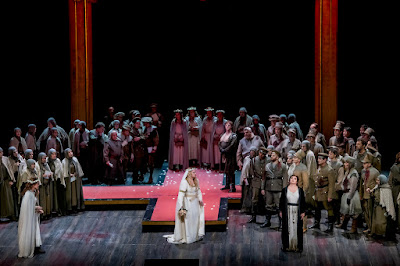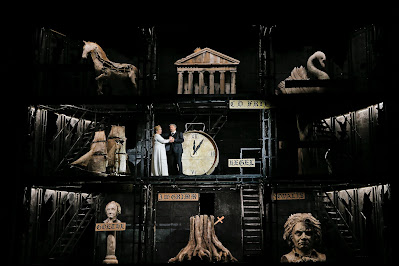🍀🍀🍀🍀🍀🍀🍀🍀🍀🍀🍀🍀🍀🍀🍀🍀
Today, I left the Emerald Isle where the Irish are supposedly known for their hospitality. It’s real! And the time of day they’ll give to you is priceless. Now I know where Mum got her reputation for being such a great hostess and for loving a good chinwag.
There was Mary Clancy, god bless her, a kind old soul waving the sign of the cross across her face in Dublin, engaging with gusto about some Father so and so. And, as the minutes passed, I went from understanding 75% of what she was enthusiastically conveying down to less than a quarter as she wore me down.
There was the super standout customer service Qantas would crave from the barmaid at Roscrea’s Lilly’s Oun Pub who, when I asked her if the pub served food, she said no but was happy to cross the road to get me the menu from the White House Pub across the road — I’d eaten there the night before.
Then, there I sat with a 1/2 pint of Guinness while the lamb cutlets and veggies, with gravy boat to add, were carried across the road and came with a smile. While the room full of lads screamed over the hurling match, I sheepishly ate my dinner.
There was old George the TFI Roscrea-to-Nenagh bus driver, who wasn’t particularly savvy at operating the ticket machine but had time for a great yarn and offered to take me to the door of my B&B about a 20-minute walk away from my destination — he was familiar with Marie, the lovely host. I was on my way elsewhere, to some ancestral piece of land I’d ascertained to be the most likely place where great great grandfather Patrick Maher grew up on, but thank you anyway, George!
At little Moneygall’s famed Ollie’s Bar where Barrack Obama drank, Eugene, the hairy, square-set drain digger, friendly as he was on a Sunday afternoon of hurling-filled sports coverage on the screens, offended the only young lady in the room after which she and her male friend moved along. And when Eugene landed into conversations on boxing, I was way out of my comfort zone.
It was Maureen Condon, I believe, at Castletown Cemetery outside Toomevara, who came to lay flowers at her husband’s well-kept grave, telling me he’d been unwell for some time, died from diabetes and that you’re never prepared for death. She is so right!
Thank you, Eileen and Tracey, the endearing tour guides at Roscrea Castle, who told me that the gates of the 13th century Roscrea Castle and doors of the 18th century Queen Anne style Damer House in its grounds had just opened for the first time since 2020. And I, quite fortuitously, was the first visitor to take the tour which was free because Tracey was in training and taking notes from Eileen’s exceptional performance. She did, however, have me when, before entering the main bedroom of Damer House, she remarked, “When we’re done in the bedroom, I’ll show you the servant’s staircase.” The brazen hussy!
In Scariff, Michael Grogan, a traditional Irish music teacher and player, who I saw several times outside his double storey Georgian styled home on the lands stained by the hardship of life at the former Scariff Workhouse, shared his enterprising story that has in many ways saved what ruins remain.
There was 36 year old Shane Hogan, beef cattle farmer with over 120 head on a 100 acre farm just before the turn off to Feakle and Killanena at Pepper’s Bar, the descendant of a Moloney and who happily gave his time telling me about his farm buildings built about the time of the Great Famine years.
There was incredible Jeremy, the Killaloe council worker at Twomilegate, at the shores of Lough Derg, who made sure my bicycle was safely locked away after my 10km cycle there — mostly downhill — while I went off to do a walk on the Ballycuggeran Loop. When I got back he insisted on buying me a ‘cone’. I forgot to tell him we call them Dairy Queens. Probably just as well!
Between Tuamgraney and Killaloe, Kay O’Brien bought an old stone building more than 20 years ago, formerly a Church of Ireland church built in about 1810, and her engineer husband renovated it with the utmost sensitivity. Oh, and there was her gorgeous dog Darcy, who stuck like glue the moment I gave in to his obsession with retrieving a tennis ball.
The saddest story I heard during my almost 4 weeks in Ireland came from kind old Myra Moroney who I was incredibly fortunate to stay with on my last night in Tuamgraney. Before I’d even seen my room I learned about the death of her daughter Suzanne in a fire at their family home that stood where we were and Myra agonisingly trying to pull her body out. Myra, her other daughter Caroline and son Austin are now just getting to terms with the loss of her husband and their father, Dennis.
I can’t forget Declan, who picked me up at the edge of Tuamgraney after I was obviously waiting in the wrong spot for a bus to Ennis via a change in Tulla — Irish rural villages could do with investing a few euros into a simple pole with a bus sign attached. Before driving along, there was a quick stop at the petrol station to pick up a coffee and Declan wanted to buy me one and refused my offer to buy his. To Tulla we went and, without too much trouble, my rekindled hitchhiking past was at it again with a lift from septuagenarian Pat, I’ll call him that, an uncommonly quiet sort who had me at my Ennis AirBnB ahead of schedule.
Thank you, Mike, the Limerick bus driver who got me free of charge to Limerick Bus Terminal because the stop for Cork I was waiting at never saw the scheduled bus. On top of that, there was the recommendation of a place around the corner to buy snacks for the trip at far better prices than those in the station and, if I’d wished to relieve myself, there was a decent pub nearby where the loos were a far better option than the ones at the station frequented by drug users.
There was dear Kathleen English who I’d approached at Ardifinnan’s St John the Baptist Church and who, one hour later, I encountered again in a kind of vision from heaven when she stopped her car a few kilometres out of the village in the middle of quiet emerald Ireland and helped me with some ancestral advice concerning the location of the local townlands.
On the lands of Killaidamee where my great great grandfather Thomas Scanlan lived and laboured, the young Lambert boys, who work in the mechanics business which their grandfather began, chatted without hurry and sent me on my way with water and a banana to continue the day’s cycling.
And finally, to all those who I hardly expected to connect but no doubt share ancestral connections to, an enormous, “Thank you!” This made real all the years of research I’ve so easily enjoyed and obsessed with at times.
Before I took the adventure into the depths of rural Ireland in search of places I only knew existed through family research, I had no idea a day wouldn’t go by without churches, cemeteries, cows and glorious green nature featuring along the way. But it was the beautiful people of Ireland, who gave the impression of knowing everyone else in their community and that they’re all connected in some way, who made these 26 days a real treat. I’d be surprised now if Mary Clancy didn’t know the Lambert boys. I’m sure to be back!
16th June, 2023









